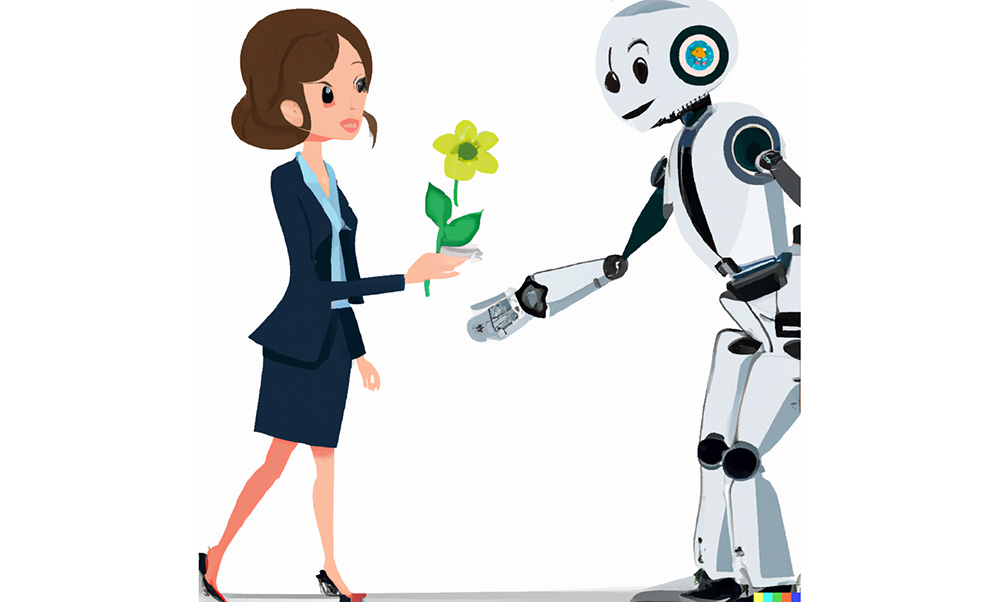
In the era of AI, one advantage that human employees will always have is their humanity. By leaning on what make you uniquely human, you’ll make yourself irreplaceable.
1. Make People Feel Heard
By practicing active listening, you can make people feel validated. Pay attention, wait for them to finish and paraphrase the speaker’s points back to them before adding your own thoughts. If you want to see what happens when people don’t feel heard, just read any random frustrated Google review.
2. Extend Kindness
Doing something nice for someone or recognizing when they need a few kind words is something that machines will (probably) never be able to do. Being the bright spot in someone’s day can create a positive memory for both of you—when was the last time you felt that way about a cold, cold machine?
3. Be Creative
Natural Language Processors are pretty good at regurgitating ideas that already exist in their data sets. But they aren’t capable of original thought. By using your creativity and outside-the-box thinking, your skills can exist beyond the reach of what algorithms are capable of. AI might be able to write a listicle like this, but can they end each item with an original joke? Nope. (Right?)
4. Foster Relationships
Over time as you get to know your clients and colleagues, your ability to relate and offer tailormade assistance deepens, in a way that AI can’t. Whether you’re mentoring colleagues, volunteering in community or just putting a friendly face on interactions, you’re building relationships that will make people prefer to work with you, over HAL 9000.
5. Adapt Readily
AI can build skills in very specific domains, but they’re not very good at using their abilities to take on a new kinds of tasks. By keeping your skillset diverse and being able to alternate between different capabilities you’ll remain untouchable—after all, there isn’t an app for that.
6. Use a Wider View
Another way that AI is limited, is that since it’s only able to tackle the tasks it’s trained on, it isn’t capable of taking a big picture perspective on things. Improving the way things work, trying new approaches and seeing the connections within broader systems are all things that only humans can do. If they ever get to that point, we might have to send a robot into the past to try to stop it.
